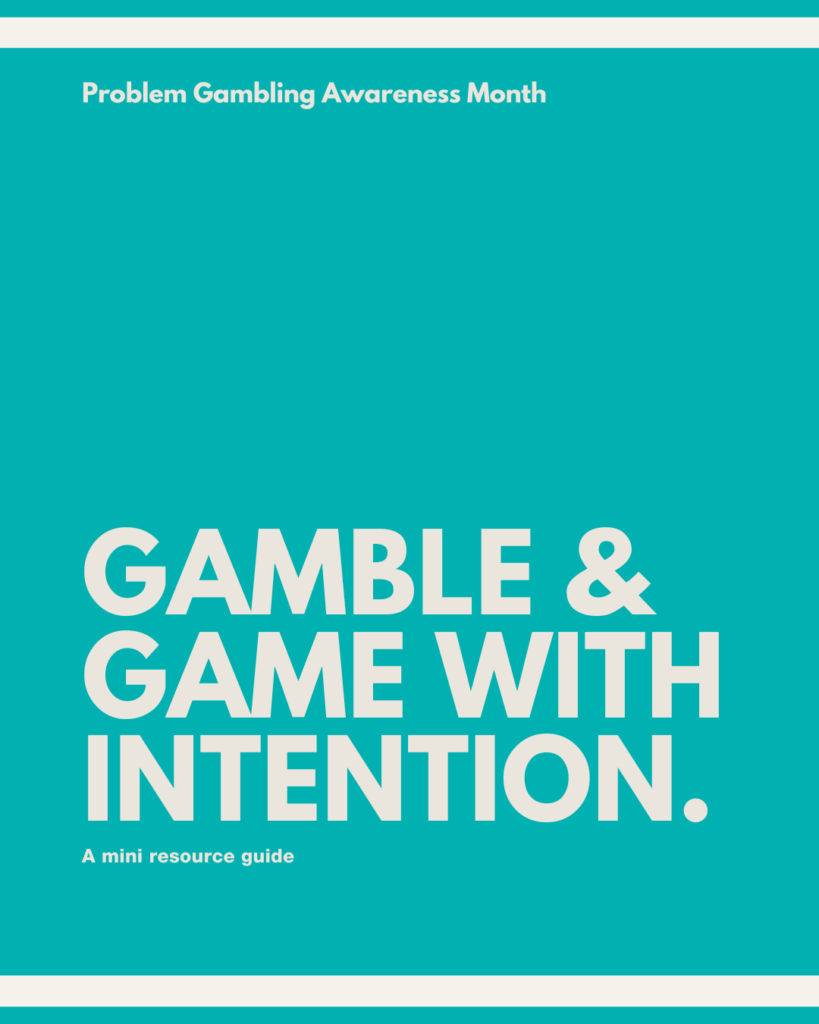Menu
Close

Understanding problem gambling: the psychology, signs and steps to recovery
Mar 28, 2025
Gambling isn’t just about casinos and poker tables—many forms of gambling happen in ways we don’t always recognize, from sports betting apps to loot boxes in video games. With the rise of online gambling, accessibility has increased, and so have concerns about addiction. The brain responds to gambling much like it does to substances, releasing dopamine and reinforcing risk-taking behaviours. Over time, this can lead to a dangerous cycle that affects mental health, relationships and financial stability.
Gambling should never come at the cost of your well-being. This Problem Gambling Awareness Month, let’s break the silence, recognize the signs and support those on the path to recovery.
Gambling at your fingertips
One of the biggest shifts in recent years is how gambling has moved onto our phones. With 24-7 access to betting apps, online casinos and even in-game purchases that mimic gambling behaviours, it’s easier than ever to fall into a gambling cycle without realizing it. The convenience of gambling from home means people can chase losses instantly, without the external cues that might signal it’s time to stop. That’s why setting personal limits, understanding gambling triggers and knowing where to find support are so important.
Why do we like to gamble?
Gambling triggers the brain’s reward system, much like substances such as alcohol and drugs. When we place a bet, our brain releases dopamine, a neurotransmitter that creates feelings of pleasure and excitement. The unpredictability of gambling outcomes amplifies this response—our brains are wired to seek out rewards, especially when they’re uncertain. This is known as intermittent reinforcement, meaning occasional wins keep us engaged, even when losses are more frequent.
Casinos and online gambling platforms are designed to keep players engaged, using flashing lights, sounds and near-misses that mimic real wins, all reinforcing the behaviour. Over time, frequent gambling can alter brain chemistry, making it harder to stop. For some individuals, this develops into gambling disorder, a recognized behavioural addiction.
How to recognize problem gambling
Many people can enjoy gambling in moderation, but for others, it becomes a compulsive behaviour. Here are some signs that gambling may be a problem:
- Chasing losses: Betting more money in an attempt to win back what was lost.
- Preoccupation with gambling: Thinking about gambling constantly or planning how to get more money to gamble.
- Inability to stop or cut back: Repeated unsuccessful attempts to reduce gambling.
- Gambling with money needed for essentials: Using funds meant for rent, groceries or bills.
- Lying about gambling: Hiding the extent of gambling from family and friends.
- Gambling to escape problems: Using gambling as a way to cope with stress, anxiety or depression.
- Relationship or job troubles: Experiencing conflicts or financial struggles due to gambling.
If you recognize these signs in yourself or someone you know, it may be time to take action.
Steps to take for help and recovery
If gambling is negatively affecting your life, you are not alone. Here are steps to regain control:
- Acknowledge the issue: The first step is recognizing the problem and accepting change is necessary.
- Set limits: Establish time and money limits for gambling and stick to them. Consider self-exclusion programs available in Ontario to restrict access to casinos and online betting.
- Find alternative activities: Replace gambling with other hobbies that provide enjoyment and social connection.
- Seek professional help: Therapy, such as cognitive-behavioural therapy, can help change thought patterns related to gambling.
- Join a support group: Organizations like Gamblers Anonymous offer peer support and a structured recovery process.
- Access financial and mental health support: CMHA Ontario and other local organizations provide resources for financial counselling, addiction recovery and mental health support.
Support is available
If you or someone you know is struggling with gambling, help is available. Contact CMHA Niagara or contact ConnexOntario at 1-866-531-2600 for confidential support and referrals to treatment programs across the province.